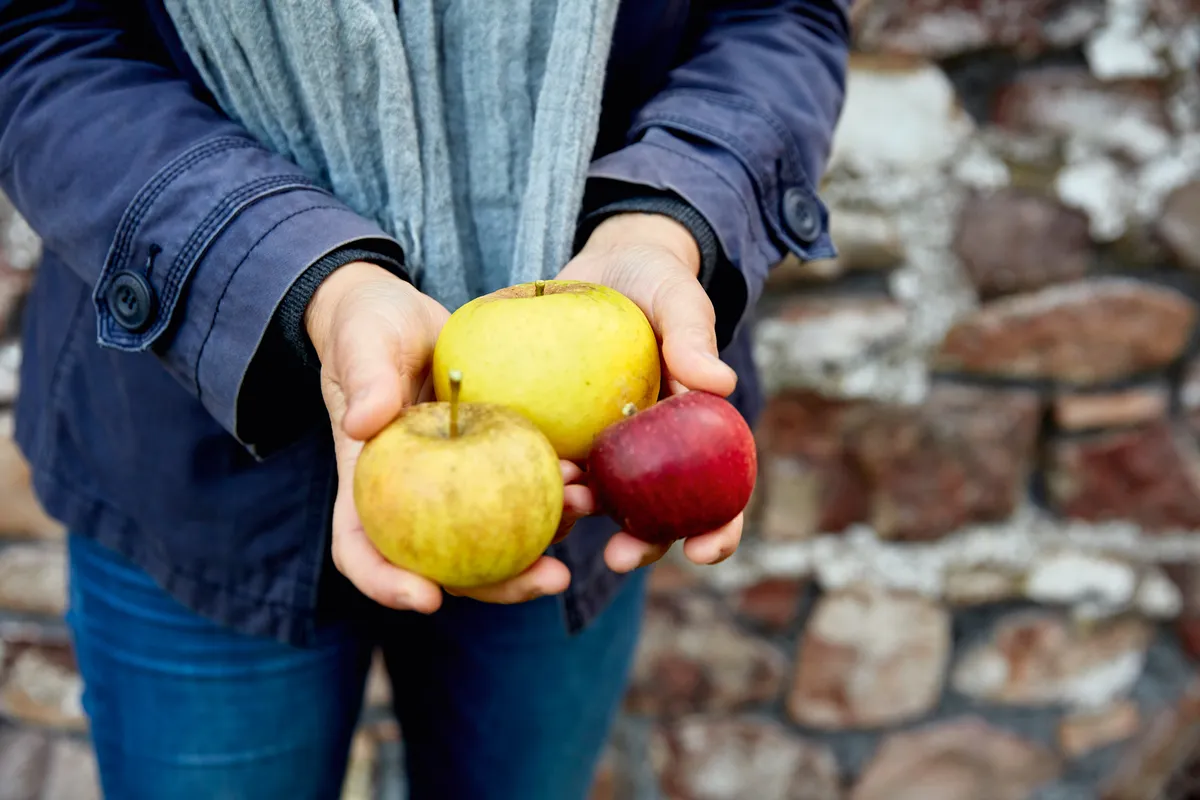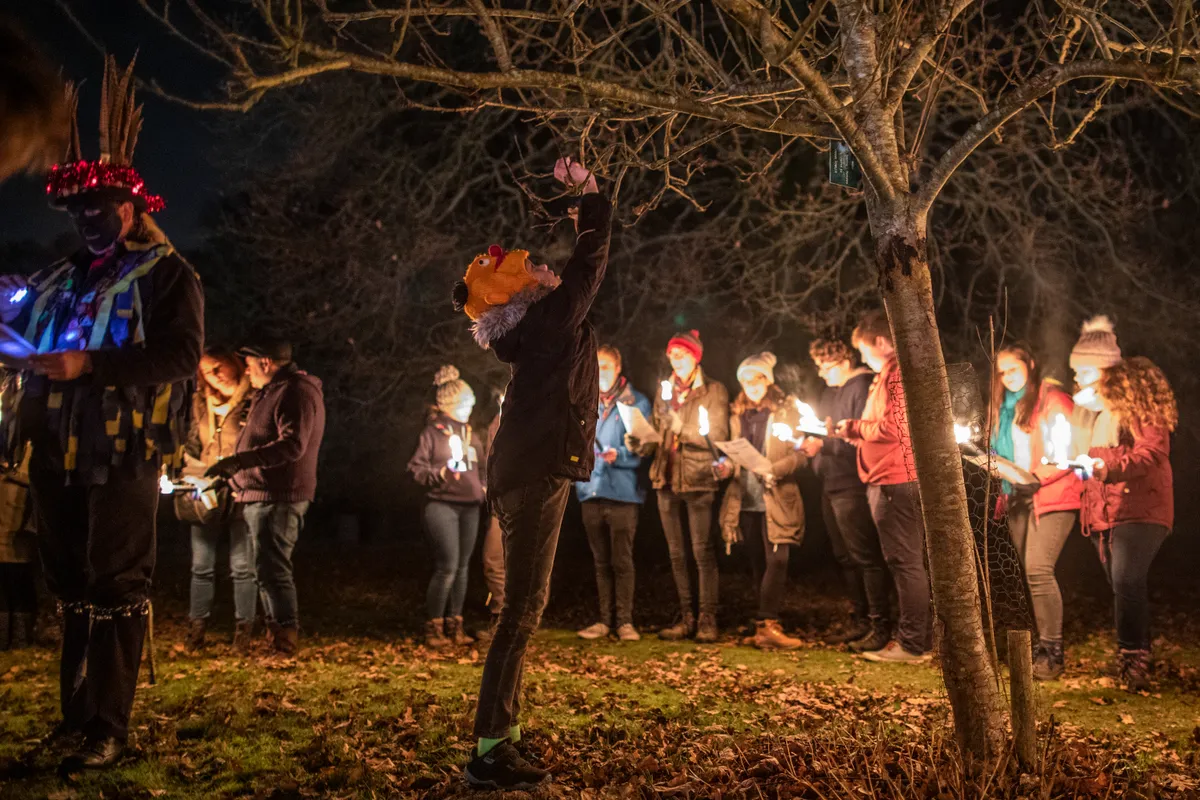Eric Freeman is a testament to the old saying that you can never tell a book by its cover. He is a big man with huge hands, a crooked nose and a generous beard. Surely these are signs that in his younger days he was a wrestler or a bare-knuckle boxing champ.
But behind the spectacles, his eyes have a mischievous twinkle, his voice has a soft West Country burr and his face often breaks into a wide, infectious smile. For decades, Eric’s fascination has been England’s rural heritage and his passion is passing it on to a new generation. In fact, his commitment to sharing his agricultural know-how earned him a lifetime achievement award from the charity FWAG (The Farming and Wildlife Advisory Group).
More related content:

Every January, Eric invites friends and neighbours to his farm in north-west Gloucestershire to revive the ancient tradition of Wassail; the blessing of apple trees and a celebration to encourage a healthy crop the following autumn. Wassail has Anglo-Saxon origins and the word comes from the Old English phrase ‘waes hael’, which means good health. So it doesn’t take a genius to work out that a fair amount of cider is consumed in the process.
What is wassailing?
Traditionally, British wassailing celebrations are held on the Twelfth Night, 5th January, however the more traditional wassailer celebrates on the 17th January, also known as ‘Old Twelvey’.
There are two types of wassailing celebrations in Britain. In the countryside, wassailing tends to involve visiting fruit trees or orchards to celebrate and bless them for the year ahead. The other type of wassailing involves groups of people visiting one houses to sing traditional songs and spread merryment and joy.
It’s nearly 20 years since Eric became interested in wassailing. “I thought it would be a good excuse for a party and a way of reviving part of our old rural culture. There’s also a serious side to the ceremony because in the days before crop spraying and pest control, our ancestors had to live in hope of a good harvest. They sought that hope wherever they could; in the spirits, the Lord or the land.”
Respect for nature
As the wassailers assemble and song sheets are handed out, the air is full of evocative sounds; the crackling of the bonfire in the orchard, the jingling of bells worn by the morris men and in the distance a mournful tune played by a lone fiddler.
Although Eric Freeman is the host of the event, the man in charge of the proceedings is a character called the Butler. “We choose someone with country roots, who has respect for nature, and they guide the visitors through the ceremony. Everyone gathers in the farmyard and we begin with a torchlight procession to the apple trees.”
Before pouring cider on the tree and drinking to its good health with cries of “Wassail, wassail”, the crowd circle the orchard. Accompanied by a morris team, mummers and an assortment of musicians, they sing the wassail. There’s a variety of lyrics throughout the counties of the west of England but they all describe taking a bowl of hot spiced ale or cider around to the houses in the town. “We’re indebted to the composer Ralph Vaughan Williams for gathering these wassails together and putting them to music.”

Like the wassail song, the ceremony itself varies from place to place. Many Somerset events involve the firing of a shotgun into the air to ward off evil. Meanwhile, the placing of toast in the branches of the apple tree is considered a good way to charm the spirits. The atmosphere is a heady combination, like the anticipation of Christmas Eve and the exuberance of
May Day mixed with a touch of English eccentricity that is usually experienced on Guy Fawkes Night. As Eric says: “Harvest Festival is the thank you, but the wassail is the plea for a good crop”.
Fingers in pies
His great enthusiasm for the tradition comes as no surprise when you discover that Eric is possibly the busiest 78-year-old in the land. Alongside the wassail, he has also revived the pre-Victorian tradition of Harvest Home on his farm. He’s actively involved in organisations concerned with everything from Old Spot pigs and Cotswold sheep to English folk traditions and rural poets. Eric was also a founding member of the Rare Breeds Survival Trust. He’s the current president of Gloucestershire Young Farmers and, until recently, he was on the council of the Three Counties Agricultural Society.
As the evening draws to an end and the visitors raise the last bowl of cider to their lips, you can’t help wondering if they’re also wishing good health to their generous host. Wassail, Eric!